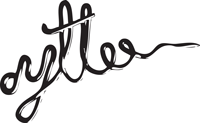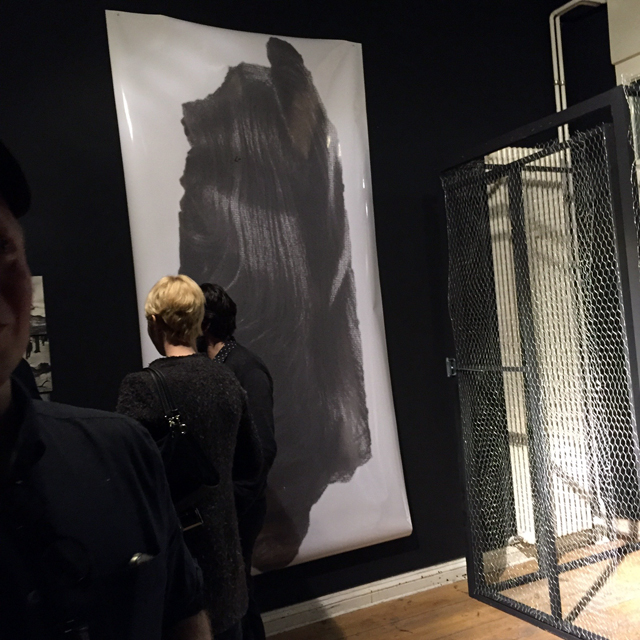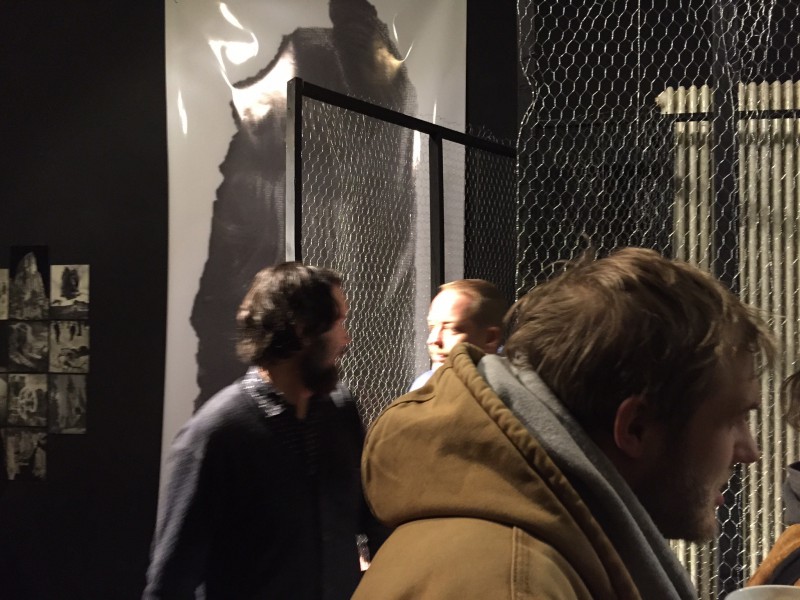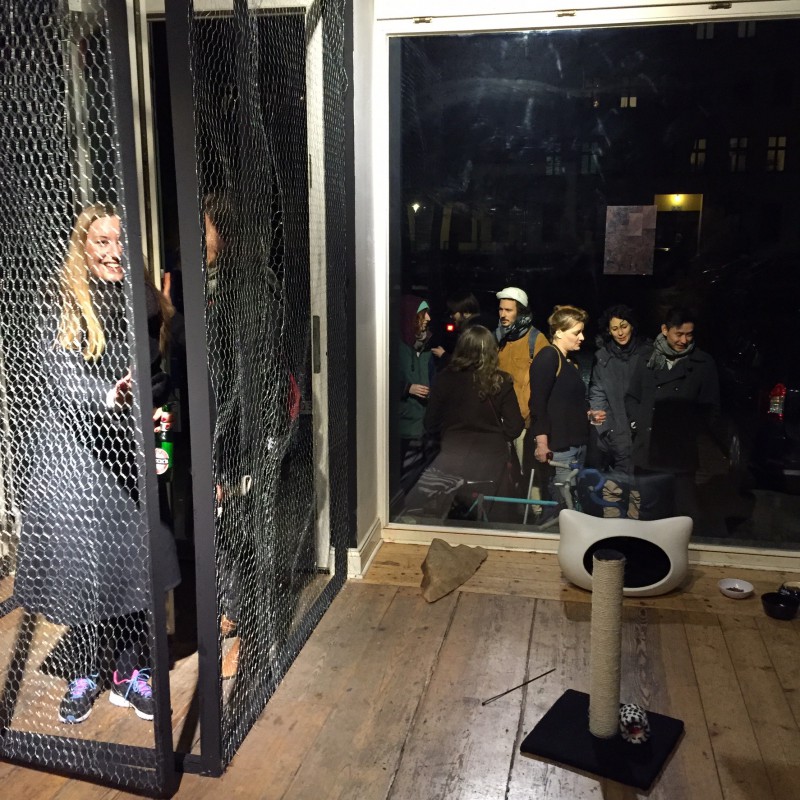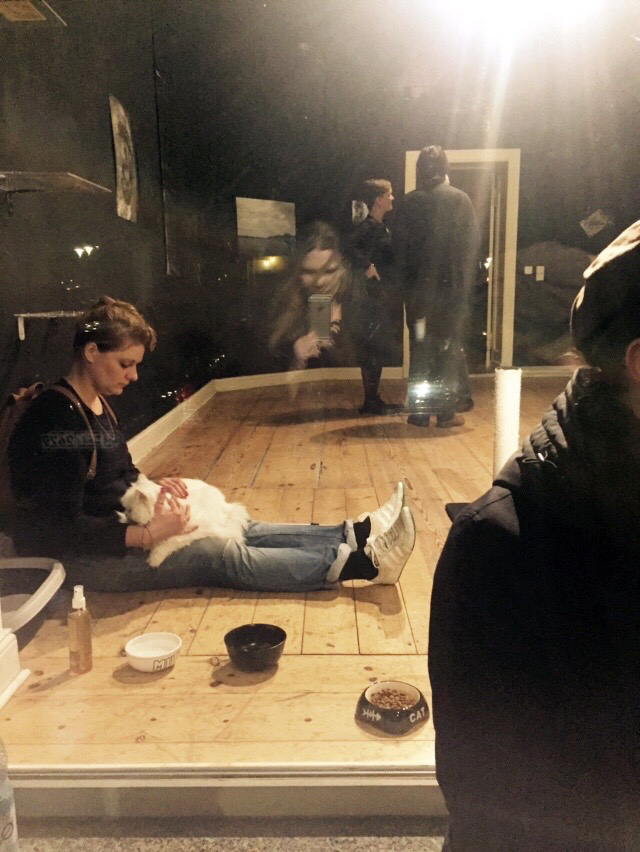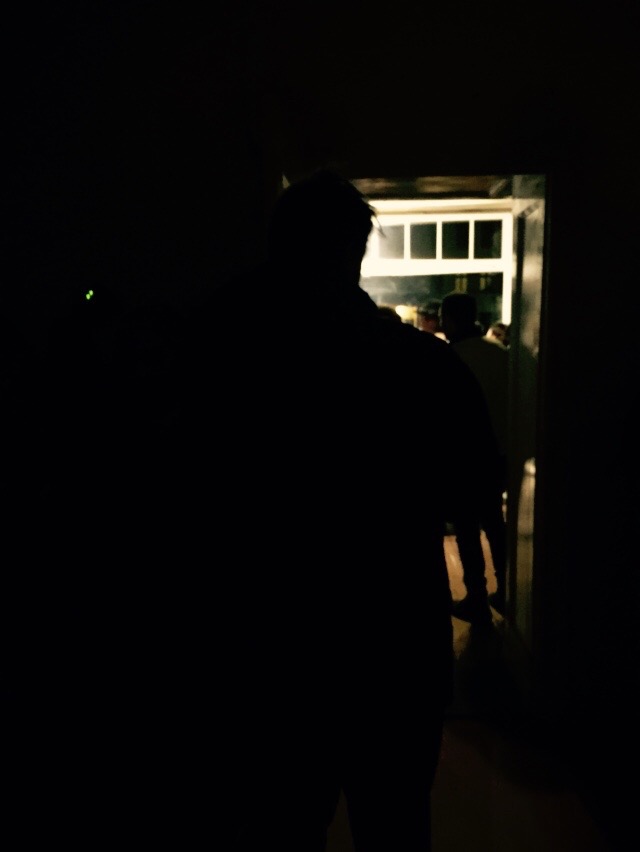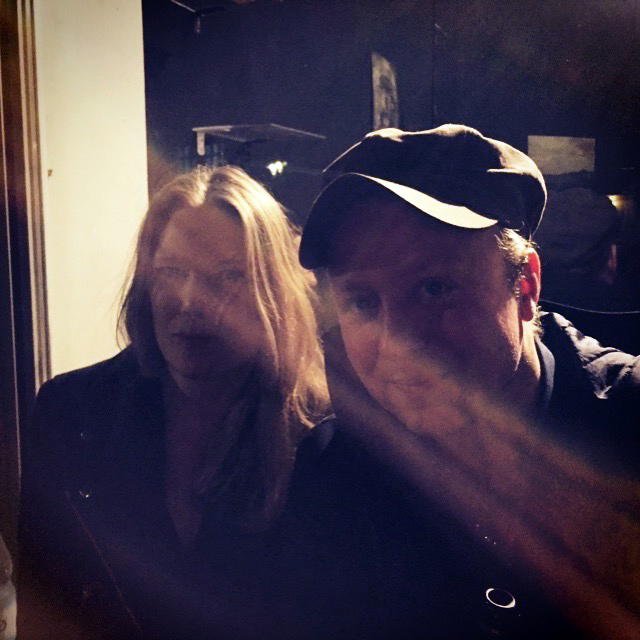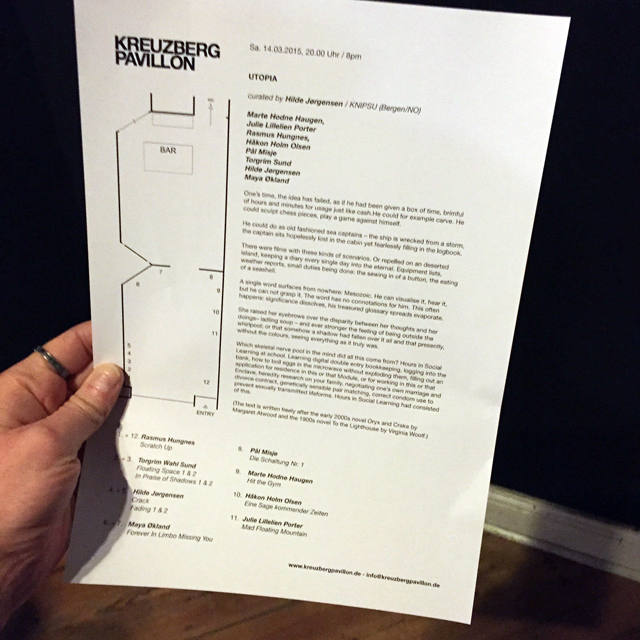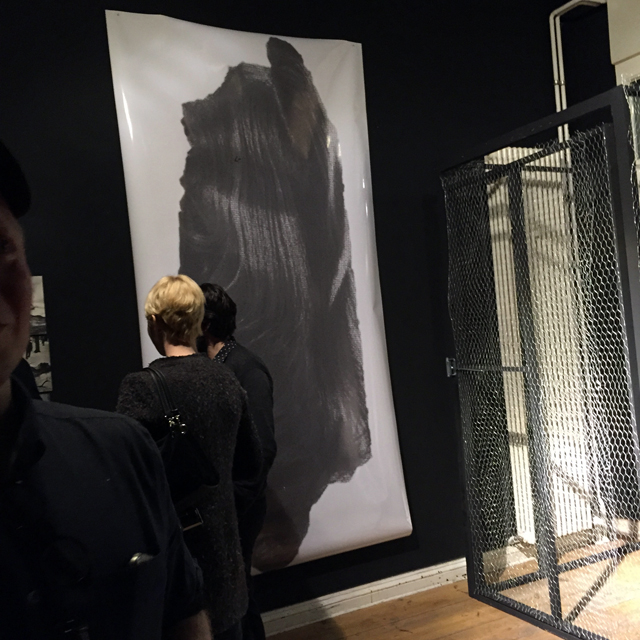UTOPIA / KREUZBERG PAVILLON 14.03.15
One’s time, the idea has failed, as if he had been given a box of time, brimful of hours and minutes for usage just like cash.
He could for example carve. He could sculpt chess pieces, play a game against himself.
He could do as old fashioned sea captains – the ship is wrecked from a storm, the captain sits hopelessly lost in the cabin yet fearlessly filling in the logbook.
There were films with these kinds of scenarios.
Or repelled on an deserted island, keeping a diary every single day into the eternal. Equipment lists, weather reports, small duties being done: the sewing in of a button, the eating of a seashell.
A single word surfaces from nowhere: Mesozoic. He can visualise it, hear it, but he can not grasp it. The word has no connotations for him. This often happens: significance dissolves, his treasured glossary spreads evaporate.
She raised her eyebrows over the disparity between her thoughts and her doings– ladling soup – and ever stronger the feeling of being outside the whirlpool; or that somehow a shadow had fallen over it all and that presently, without the colours, seeing everything as it truly was.
Which skeletal nerve pool in the mind did all this come from? Hours in Social Learning at school.
Learning digital double entry bookkeeping, logging into the bank, how to boil eggs in the microwave without exploding them, filling out an application for residence in this or that Module, or for working in this or that Enclave, heredity research on your family, negotiating one’s own marriage and divorce contract, genetically sensible pair matching, correct condom use to prevent sexually transmitted lifeforms. Hours in Social Learning had consisted of this.
The text is written freely after the early 2000s novel Oryx and Crake by Margaret Atwood and the 1900s novel To the Lighthouse by Virginia Woolf.
